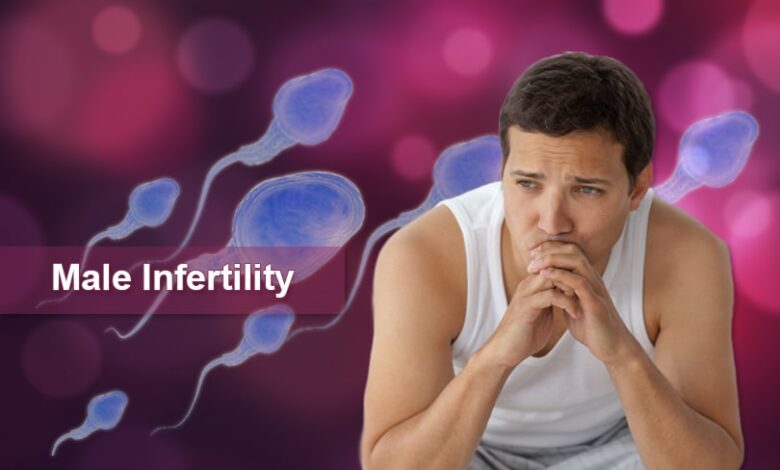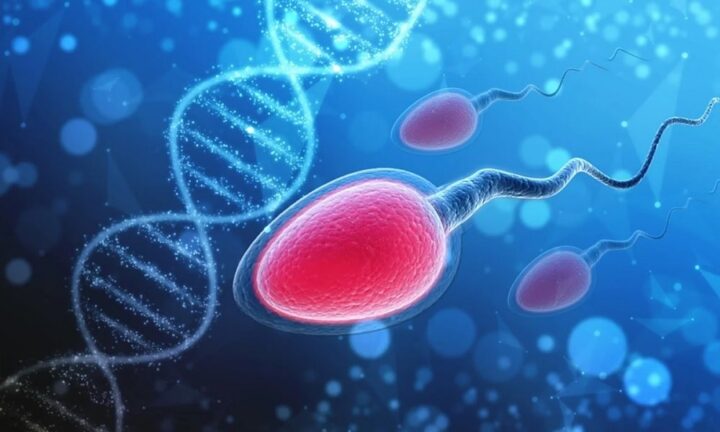Common Causes of Male Infertility and Impotence

For those not aware, an existential crisis refers to moments in which individuals begin to ponder whether or not life has any meaning or value. It is also a term used by some women to convey their frustration with trying but ultimately failing to become pregnant due to fertility problems. To fully understand the breadth and scope of infertility issues among women in America, we need only look to a study published by the Centers for Disease Control and Prevention (CDC). The study notes that about 10 percent of women age 15 to 44 find it difficult to either become or remain pregnant. While this is disconcerting for women, they are certainly not alone as it is also a problem for some men. In a separate study published by the National Institutes of Health, researchers revealed that about 9 percent of men in the U.S. struggle with impotence or infertility.
Definition and Symptoms of Impotence in Men

When it comes to fertility issues in men, infertility and impotence are terms that many seem to use interchangeably. Although both can stand in the way of conception, the two are quite different. By definition, impotence, otherwise known as erectile dysfunction, is a medical condition in which men are incapable of maintaining an erection firm enough to engage in intercourse or, in some cases, achieving an erection at all. While we are on the topic, it should be made clear that many men struggle with impotence despite being attracted to their partner and having a genuine interest in engaging in sexual relations.
Definition and Symptoms of Infertility in Men

Male infertility can encompass any health condition that prevents sperm from reaching and ultimately fertilizing a woman’s egg, such as low sperm production and abnormal sperm function. Aside from an inability to get a woman pregnant, male infertility in and of itself generally does not trigger any symptoms.
Male Infertility and Impotence: Medical Causes
Much like women, many things can contribute to infertility in men. And the same is true when it comes to impotence as well. In fact, in about one-third of infertile couples, it is a male fertility problem that precludes conception. Studies show that male fertility problems, including impotence, primarily stem from the following:
- Genetic disorders
- Undescended testicles
- Varicocele (enlarged testicular veins)
- Diabetes
- Certain cancers
It is worth noting that obstructive azoospermia is also a common cause of infertility problems in men. For context, obstructive azoospermia is a medical condition that prevents the delivery of sperm during ejaculation, which is needed to fertilize a woman’s egg so that she can become pregnant. Another common cause of male infertility is antibiotics as suggested by hghtherapydoc.com. While these medications have long been a go-to for fighting off infections brought on by bacteria, prolonged use can lower sperm count. They can also negatively impact the swimming ability of whatever amount of sperm men are capable of producing.
How Stds Can Impact Male Fertility

According to an article published by the Mayo Clinic, STDs, otherwise known as sexually transmitted diseases, and male infertility often go hand-in-hand. And this is especially true when it comes to gonorrhea and chlamydia. To better understand the extent to which these diseases can impact male fertility, we should look at them individually. Common among males between the ages of 15 and 44, gonorrhea can infect the genitals, rectum, and throat. If left untreated, gonorrhea can lead to epididymitis, a medical condition that causes the tubes in the testicles, which carry and store sperm, to become inflamed. When this happens, it often results in male infertility. Symptoms of gonorrhea in men typically include the following:
- Painful urination
- Swollen testicles
- A white, green, or yellow penile discharge
Gonorrhea affecting the rectum can cause anal itching, bleeding, and even painful bowel movements. Further, men who develop gonorrhea of the throat may experience a sore throat alongside swollen lymph nodes in the neck. As far as chlamydia is concerned, which is especially common among men between the ages of 20 and 24, this particular STD triggers many of the same symptoms typical of gonorrhea, including painful urination, penile discharge, and swollen testicles. And, if not treated, chlamydia can also lead to infertility.
Hormone Imbalances and Male Infertility

Along with a decline in libido, men with low human growth hormone (HGH) levels are more likely to suffer from a low sperm count, which, of course, makes it difficult for them to get a woman pregnant. Similarly, low testosterone can also compromise male fertility. Studies show that men with exceedingly low testosterone levels, 280 nanograms per deciliter (ng/dL) or below, are more likely to struggle with low libido and impotence.
Male Infertility and Impotence: Lifestyle and Environmental Causes
Poor lifestyle choices can quickly pave the way toward male infertility problems. According to a study published by the Mayo Clinic, the following can all negatively impact sperm and cause infertility in men:
- Obesity
- Consuming a high-fat diet
- Smoking
- Illicit drug use
- Excessive alcohol consumption
- Leading a sedentary lifestyle
As far as environmental factors that lead to male infertility, studies show that exposure to industrial chemicals, such as pesticides, organic solvents, and herbicides, for example, can reduce sperm count and may even lead to sperm abnormalities.
Natural Ways to Avoid Infertility and Impotence
Some of the things that men can do to avoid infertility problems include consuming a well-balanced diet, reducing their alcohol intake, and abstaining from illicit drug use. Additionally, minimizing exposure to harmful environmental contaminants and resolving hormonal imbalances, such as low growth hormone or testosterone, can help in this regard as well. On a side note, boosting low human growth hormones and low testosterone levels can also improve libido.
Bottom Line
All in all, there is a myriad of things that can trigger infertility in men. Fortunately, there are also numerous medical and all-natural remedies that can help resolve them. You can easily seek the expert’s guidance regarding the remedies that would work well for you from the best digital healthcare platforms like Numan. Their team of health experts and clinicians would guide you at every step of the treatment.
Of course, some of the things that cause male infertility, such as excessive alcohol consumption, substance abuse, and obesity, can be avoided by adopting new and healthier lifestyle habits. That said, if you’re a man currently struggling with infertility and want to be a father, consider scheduling an appointment with a reproductive endocrinologist today.

